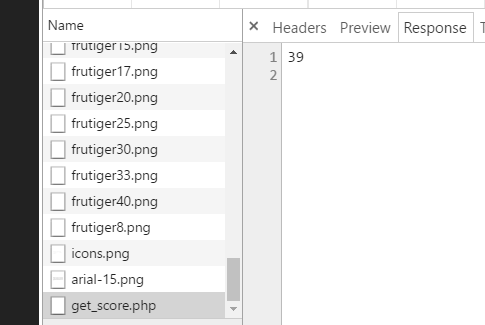Hi,
I made a little math game and want to save and load the highscore with php and mysql.
Everything works fine in the desktop and the android version. But in the html version of the game I can save the score but the highscore dont want to load ingame.
The code I use
HttpRequestBuilder requestBuilder = new HttpRequestBuilder();
HttpRequest httpRequest = requestBuilder.newRequest().method(HttpMethods.GET).url(EqualConstants.USERLEVELS_GETPHP).build();
Gdx.net.sendHttpRequest(httpRequest, new HttpResponseListener() {
@Override
public void handleHttpResponse(HttpResponse httpResponse) {
String resultAsString = httpResponse.getResultAsString();
String[] split = resultAsString.split("\n", -1);
if ((split != null) && (split.length > 0)) {
maxScore = Integer.valueOf(split[0]);
}
}
@Override
public void failed(Throwable t) {
Gdx.app.log("Failed ", t.getMessage());
}
@Override
public void cancelled() {
Gdx.app.log("Cancelled", "Load cancelled");
}
});
return true;
Can someone tell what is wrong? Thanks =)



